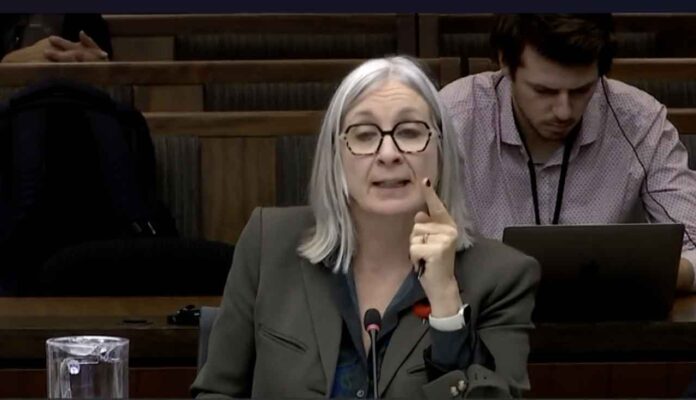Minister Hajdu Comes Under Fire at House of Commons Committee Hearing
THUNDER BAY — Indigenous leaders are denouncing the federal Procurement Strategy for Indigenous Business (PSIB) following revelations of misuse.
This week, Indigenous Services Minister Patty Hajdu faced scrutiny during House of Commons committee hearings after a Global News investigation, in collaboration with First Nations University of Canada, exposed significant loopholes in the federal program.
The Minister appeared frustrated under questioning by Conservative MPs who seemed equally frustrated that the Minister was not giving them the answers to their questions.
At issue are major contracts that have apparently been awarded to companies claiming Indigenous ownership which was never checked to ensure that the companies being awarded major contracts were actually Indigenous owned.
Allegations of “Shell Companies” Undermining Indigenous Businesses
The PSIB program aims to direct at least five percent of federal contracting funds to First Nations, Métis, and Inuit companies. Designed to foster “economic reconciliation” by empowering Indigenous-owned businesses, the program represents a multi-billion-dollar opportunity for these communities.
However, internal government documents dating back to the late 1990s reveal concerns that the program could be exploited by “shell companies” falsely claiming Indigenous ownership to secure contracts.
The investigation found that until 2022, companies could self-identify as Indigenous to join the federal Indigenous Business Directory, which government departments use to select suppliers.
In committee hearings, Indigenous leaders expressed frustration at the lack of rigorous verification and raised questions about how many audits Indigenous Services Canada has conducted to ensure that registered companies are genuinely Indigenous-owned.
Calls for Indigenous-Led Verification and Oversight
Justin Metatawabin, CEO of the National Aboriginal Capital Corporations Association, voiced frustration in Parliament, highlighting the absence of a transparent list of registered Indigenous businesses.
Metatawabin advocated for Indigenous oversight in certifying the authenticity of businesses in the program to prevent non-Indigenous entities from benefiting at the expense of legitimate Indigenous enterprises. “We need the list to help the government identify bad actors,” Metatawabin stated, emphasizing the need for Indigenous-led verification of business credentials.
Thunder Bay Perspective: Why This Matters Locally
For communities in Northwestern Ontario, ensuring the integrity of federal programs like PSIB is critical. Local Indigenous businesses could be disadvantaged if ineligible companies continue to siphon federal contracting opportunities.
Transparent processes and Indigenous-led accountability measures could help strengthen opportunities for legitimate Indigenous businesses in Thunder Bay and beyond, bolstering economic development and supporting Indigenous self-determination in the region.







